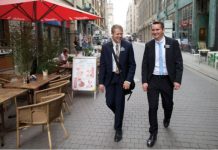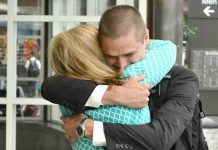
The following is the first Chapter of Andy Proctor’s new book “Live Your Mission: 21 Powerful Principles to Discover your Life Mission After Your Mission.”
In April of 2015, I published an article on www.ldsmissionaries.com that got over six hundred thousand organic impressions on our Facebook page. It was an April Fools joke. The title was “Unmarried Returned Missionaries: New Option to Apply for Second Full-time Mission.”
It posed as a Church announcement to make returned missionaries think that if they hadn’t gotten married yet, they had the chance to apply for a second full-time mission. We stopped promoting it after the holiday was over, but it was one of our most popular posts ever. Hundreds of comments poured in from returned missionaries who were angry at the fact that this was a joke.
I began receiving emails from hopeful RMs saying that they wished that this was possible. The fact that this article went viral within the LDS niche is an indication to me that there are tens of thousands of returned missionaries who haven’t yet figured out their purpose after the mission. I believe a huge reason is because they haven’t separated their role from their identity.
When you come home from your mission, you will have to face a big question:
Who am I now?
You have been a missionary for your whole mission. You had a name tag and a prophetic assignment. As a missionary, you are taught to make it a part of you, but being a missionary is a role not a characteristic of your identity. Your role has been to be a full-time missionary. Your whole mission you could say “I am a missionary,” and it was true.
As you seek to discover and live your unique life mission, you need to understand your identity. Not just the role or roles that you take on, but your identity—the core characteristics of who you are. How can you tell the difference? I’ll give you some examples of roles and then some examples of characteristics of identity.
Identity Characteristics vs. Roles
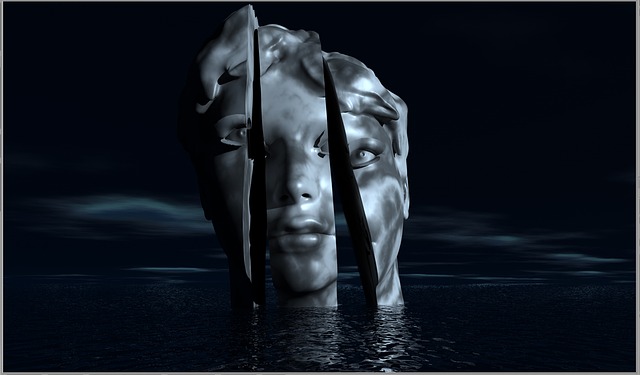
Examples of roles:
- Full-time missionary
- Husband/wife
- Mother/father
- Student
- SEO specialist
- Photographer
- Runner
- Internet entrepreneur
- Sunday School teacher
- Blogger
- Author
- Dancer
- A member of the LDS Church
- Marketer
- Doctor
- CEO
- Elder’s Quorum president
- Bilingual speaker
You could add the words “I’m a . . . ” before each of the roles but not one of these roles could truly describe who you really are deep down. Though you have been a full-time missionary your whole mission, saying “I’m a missionary” does not describe who you really are deep inside.
Each missionary is unique. Each companion you had possessed different strengths and weaknesses though every companion had the role of missionary. You are no longer a full-time missionary. You will now take different roles as you return from your mission. People will ask you questions like, “What is your major?” or “What do you want to do with that?” or “What do you do for work?” You will naturally respond with “I’m a . . . fill in the blank with your current role.” Never let your current role be confused with your identity.
Examples of core identity characteristics:
- Peacemaker
- Student
- Speaker
- Scientist
- Artist
- Influencer
- Leader
- Starter
- A people person
- Innovator
- An educated person
- Potentialist
- Mover and shaker
- Romantic
- Multipotentialite
- Believer
- Spiritual person
- Regulator
- Organizer
- Adventurer
- Discoverer
You could add the words “at heart” after any identity characteristic. You will rarely, if ever, mention your identity characteristics in a job interview or an introduction. Our society revolves around roles. Unless you are having a heart-to-heart conversation with someone, you will rarely talk about who you really are at heart. The important thing to remember is that you will need to become really clear about the characteristics of your core identity to discover and live your unique life mission.
Once you clarify your core identity characteristics, you will be more capable of looking at your life and figuring out a role that might complement your core identity. Some people use personality tests to figure these out. I think this can be helpful. A few that have helped me are the Myers-Briggs Test and the Color Code Personality Test. There are free versions of both of these online. In addition to these, I have a method that helps me to trust my gut and get clear about who I am. Here it is.
5 Steps To Determine Identity Characteristics
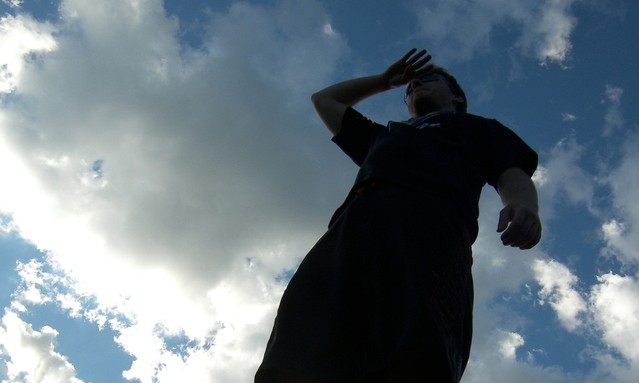
Step 1. Find a comfortable place that will allow you to be undisturbed for at least an hour. Bring a snack if you have to. You may need to plan ahead, so that you don’t have anything pop up. Turn off all devices and bring your journal or whatever feels most comfortable for writing or typing your thoughts.
Step 2. Draw a line down the middle of your paper if you are using a journal or create a table if you are using an electronic document. Write down what you believe the top ten personal achievements or accomplishments in your life. These are things you have done that you personally feel very proud of having accomplished. Make sure you number each one. Examples: Learned to play clarinet in sixth grade, kept a steady journal since I was ten years old, learned how to build a website, went on a mission, learned a foreign language, graduated from high school, stayed out of debt, got accepted to my program, etc.
Step 3. Look at each one and ask yourself the question, “What does this say about the type of person I am?” or “Why did I do this?” or “Why was this a meaningful accomplishment for me?” Write the corresponding number and your response to these questions. Think about it and be true to your heart as you write. Why was it important for you to accomplish these things?
Step 4. Repeat step two, but instead of writing things you have accomplished, write down ten things that you want to accomplish in the next ten years. Make sure the things you write down are things that are personally meaningful to you.
Step 5. Look at each of these ten future accomplishments and answer the question, “What does this say about the type of person I want to become?” and “Why do I want to do this?” and “Why is this a meaningful accomplishment for me?”
After you have completed this exercise, you should be able to pick out some core identity characteristics.
Here is an example with just one from my life:
| Accomplishment | What does this say about me? |
|---|---|
| I graduated from university | I am a dedicated student. I love learning. I am a hard worker. This was meaningful to me because my mom and many of my siblings didn’t graduate from university, and it feels good. |
| I want to travel the world with my camera | I want to be independent and financially stable enough to travel. I love to discover new cultures, religions, art and meet new people. I love adventure. This would be meaningful because I am an artist at heart and love |
You will be much happier and fulfilled in life if you align your academic study, jobs, careers—and as many roles you take on within those—with your core identity characteristics. The personality tests can help you see some of them. The above exercise can help you find more. Pray about this as well, and God will help you to see yourself more clearly.
Final Advice for Returned Missionaries
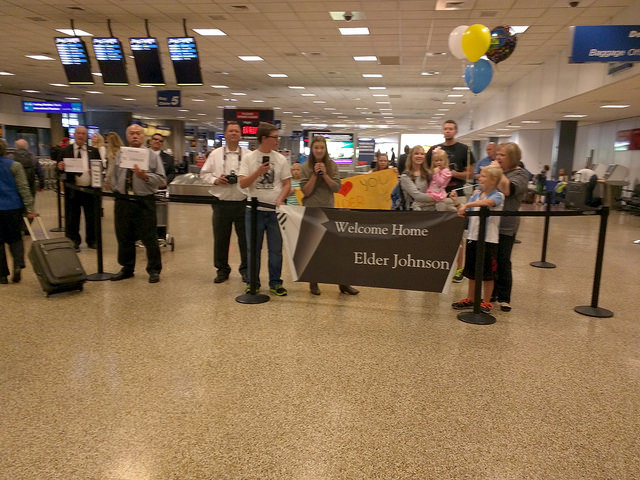
The more you separate your roles from your core identity characteristics, the easier it will be to clarify your mission in life because you know the person you are at heart. Regardless of the roles you take on throughout your life, you will always be clear on who you are and why you are doing what you are doing. It’s not bad to want to be a missionary again. You should always try to be a member missionary.
I believe, however, the returned missionaries who flourish the most are the ones who separate their role as a missionary from the characteristics of their core identity. They flourish because they can take these core characteristics and strengths and move forward in life stepping out of the role of a missionary and stepping into new roles. They understand that being a missionary was truly important, but the reason they were so happy is because they were using their core characteristics to be an amazing missionary.
People will always ask you if you have adjusted to the world yet after your mission. This makes me feel uncomfortable because it sounds like the expectation is to step into worldliness. It’s as if you can’t be truly acceptable as a returned missionary until you have stepped into worldliness again. This should not be so.
Adjusting from the mission should never break the standards of the Church, full-time missionary or not. My idea of adjusting is not stepping into any form of worldliness. Instead, it is solidifying your core identity characteristics and stepping out of the role of full-time missionary into new roles. If you have done this, you can answer with confidence that you have adjusted.
 Did you watch all the movies you missed while on the mission? Have you had your first kiss after the mission? Do you feel comfortable going by your first name again? All of these questions are personal, and the only thing you should focus on is if you are clear on your identity.
Did you watch all the movies you missed while on the mission? Have you had your first kiss after the mission? Do you feel comfortable going by your first name again? All of these questions are personal, and the only thing you should focus on is if you are clear on your identity.
If you are, go forward with confidence into the next role you will take on and disregard what everyone else says about your adjustment. That is between you and God, period. No matter what roles you take on, your core identity is what will stay with you forever. Never forget that as you come home and seek to discover and live your personal life mission.



